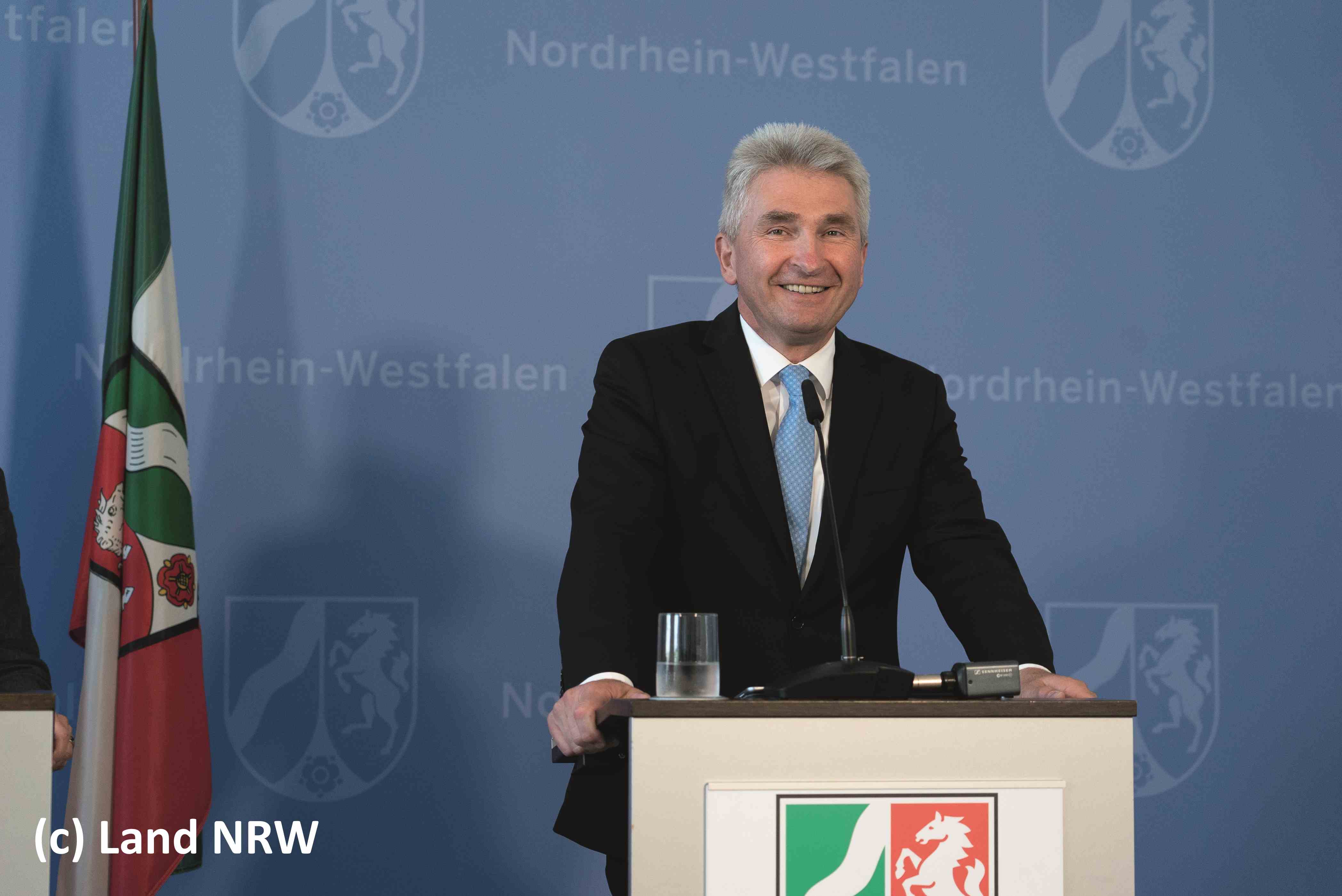
In my experience, many companies have already actively expanded their IT infrastructures and skills in recent years. This has not only entailed heavy investment in hardware, but has fortunately also driven investment in upskilling the workforce. The SMEs in this country must now continue along this path. IT security has to be implemented in a professional manner. Only if a company’s own data is well protected and handled responsibly do customers and business partners develop the trust needed for a close, long-term relationship. I am therefore always telling the representatives of all companies and industries that IT security is a top priority and investments in secure, digital business processes are an increasingly important factor in commercial success.
We have brought forward full digitalisation from 2031 to 2025 and are getting universities and almost all state authorities involved. We are also investing an additional €600 million in making public administration simpler, faster, and more cohesive and transparent – and therefore more customer-friendly. With the amendment of the E-Government Act, we are introducing regulations for the NRW service portal as a platform for digital administrative services, and are therefore preparing the ground for the implementation of the Online Access Act (Onlinezugangsgesetz). This in turn means that we will also be offering a large proportion of our administrative services electronically via online portals by the end of 2022. The pilot municipalities Aachen, Gelsenkirchen, Paderborn, Soest and Wuppertal are currently setting up service-ready digital citizens’ offices and will eventually make their solutions available to other cities and municipalities free of charge. The services offered will range from registration for full-time schools and nurseries to waste disposal and the levying of the dog tax. Last but not least, there are also a growing number of digital services for companies. The Trade Service Portal (Gewerbe-Service-Portal) is a national flagship project that is currently being expanded into a Business Service Portal (Wirtschafts-Service-Portal). Even today, founders in North Rhine-Westphalia can advertise, register or deregister their businesses – and pay for this – electronically and without media discontinuity.

The corona crisis is posing a major challenge for information technology in state administration. We have successfully risen to this challenge together, but the corona crisis has naturally also shown us where we still have more to learn and where we could optimise our processes. All in all, we can be proud of the fact that we have been able to significantly expand our infrastructures within a very short period of time, without compromising security or data protection – something which is particularly important to me. Within two months, more than 14,000 workstations in ministries and state authorities were transformed into home office workstations. In order to cope with this workload, we doubled the capacity of the central IT infrastructure for teleworking within just a few weeks. A similar development was also achieved with the video conference platforms operated by the state, for which we more than tripled capacity.
It is well known that every crisis brings opportunity. The coronavirus pandemic has given a boost to digitalisation in public administration. Thanks to the measures implemented in recent years to digitalise our administrative work, we in the Ministry of Economic Affairs and Digital Affairs were able to set up the Corona NRW Emergency Aid Program (Soforthilfeprogramm Corona NRW) in just a few weeks, even with a large number of employees working from home. Together with our dedicated colleagues in the district governments, we have therefore been able to quickly help more than 400,000 self-employed workers and SMEs without the headache of red tape. This would have been unthinkable a few years ago and encourages me to continue to promote a consistent digital transformation in business and wider society.
The Rhine-Ruhr region is indeed one of the most important IT security hubs in Europe. And I am delighted that I am not only talking about excellent science here; our entrepreneurial landscape is in outstanding shape. Start-ups from North Rhine-Westphalia have particularly made a name for themselves in the field of IT security, and we want to continue supporting our state’s brightest minds by getting their business ideas off the ground. In the time of corona, we need more innovation than ever. We want to continue funding research and development in the fields of IT, AI and digitalisation, thus enabling us to support innovative projects. In addition to direct financial support, I am very keen to promote knowledge exchanges between science and business. This is not simply a matter of exchanging information within sectors but, most importantly, making the many SMEs in all sectors of our economy fit for the future when it comes to IT and cyber security. For this reason, we will be announcing a cyber security competence centre for businesses in North Rhine-Westphalia this year. Our goal is to strengthen businesses’ IT security and create the best possible environment for innovation and ideas. The combination of outstanding research and innovative, highly specialised companies in the field of IT security will increasingly become one of our state’s most important calling cards, both nationally and internationally.

Do you have any questions or comments about this article? Then contact us via the contact form on the right!
secuview is the online magazine of secunet, Germany's leading cybersecurity company. Whether cloud, IIoT, home office, eGovernment or autonomous driving - there can be no digitisation without security.

